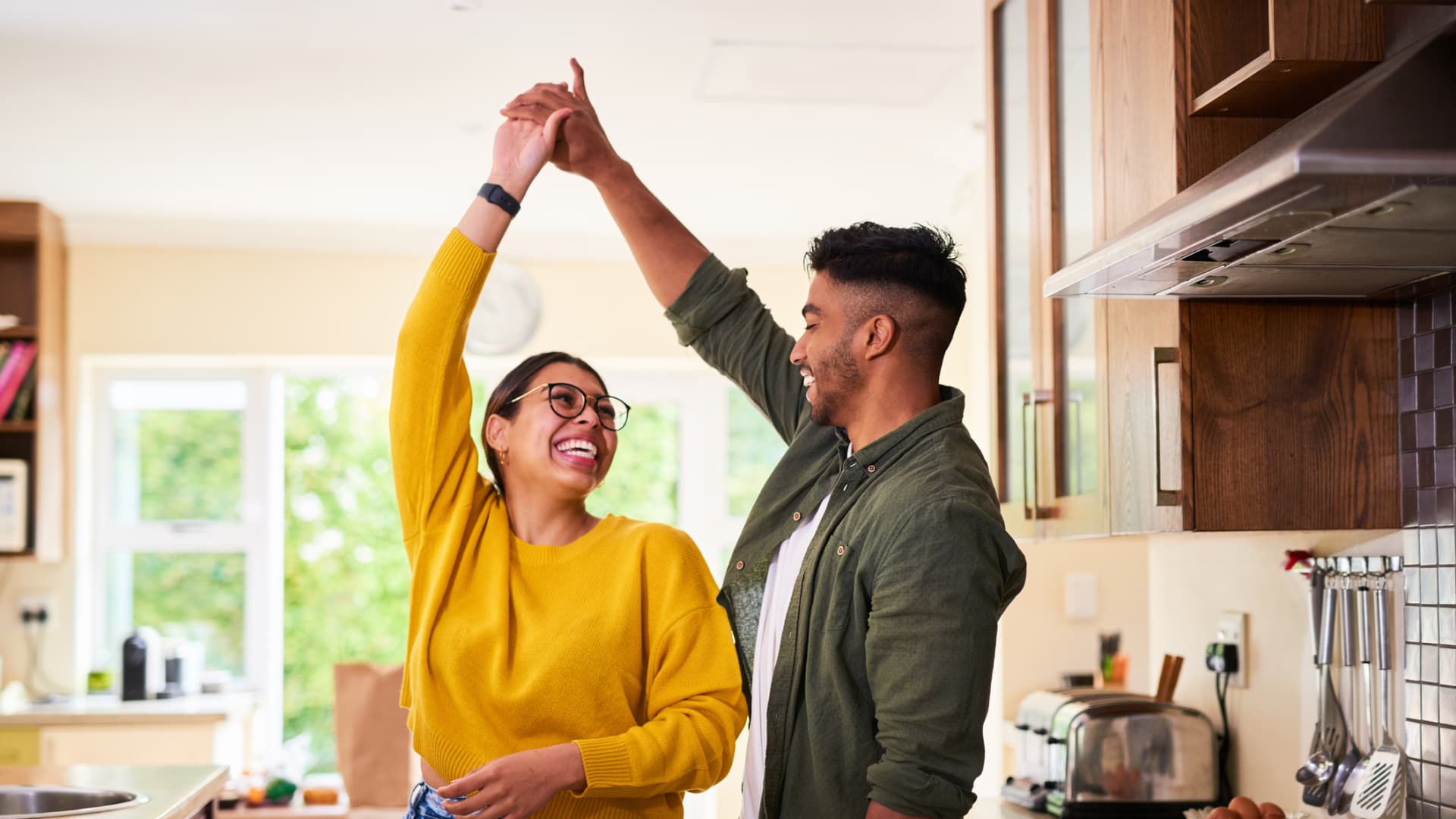Are you considering an open relationship? Ask yourself these 5 questions first
If you're thinking about entering an open relationship for the first time, ask yourself a few crucial questions.

If you're using dating apps, you've probably come across a few profiles that say "ENM," indicating the person is looking for ethical non-monogamy.
This could mean a few things, says Avital Isaacs, a therapist at Manhattan Alternative Wellness Collective, a mental health practice that serves queer and trans people, non-monogamous people, and sex workers.
"Non-monogamy is an umbrella term for a wide range of different kinds of relationship styles," she says. "People who are married to one another who have permission slips to sleep with other people on work trips, all the way to anarchic style of relations where there can be multiple romantic partners."
A common type of ENM is an open relationship, which is when a person has one or more romantic or sexual partners at one time.
According to a paper published in the Journal of Social and Personal Relationships in 2015, approximately 4% to 5% relationships were consensually non-monogamous. That number has likely increased.
If you're thinking about entering an open relationship for the first time, there are a few questions you can ask yourself to make sure it's the right dynamic for you.
5 questions to ask yourself before entering an open relationship
1. What do I want?
This sounds obvious, but it's important to take pause and think about what you are actually looking for.
"Oftentimes people will agree to arrangements that aren't perfect for them because they feel attracted to the other person," Isaacs says. "If the thought is, 'I really just want this person and I'll say yes to whatever,' that's important information."
Think about your ideal relationship, sans the person you're talking to, and whether that more resembles monogamy or non-monogamy.
2. Why do I want to explore an open relationship?
When Megan Hanafee Major, a therapist who works with couples, marriage, gender, and sexuality, counsels those who are curious about non-monogamy, she asks them to think about what they believe they'll get from an open relationship.
"Perhaps you are in a committed long-term relationship but realize that you and your partner have unmet relational needs," she says. "Thinking about what those needs are and what is keeping them from being met currently will set you up for success."
Perhaps you are in a committed long-term relationship but realize that you and your partner have unmet relational needs. Thinking about what those needs are and what is keeping them from being met currently will set you up for success.
Megan Hanafee Major
Therapist
3. What do I hope an open relationship will enhance in my life?
Be honest about your goals and the fact that an open relationship won't solve all your problems, Major says.
"There are things that any relationship or relationships, no matter how wonderful, can never fully satisfy," she says. "For example, if you realize that you are seeking external validation that is rooted in deep insecurity, you may need to revise your goals."
Isaacs agrees that an open relationship isn't an excuse for you not to work on your own problems.
"An adage is, 'what we don't integrate or accept about ourselves we will project onto others,'" she says.
A common example is if you haven't healed from parental wounds, you might project that resentment onto a spouse.
Whatever the issue, it's important to "do your homework," Isaacs says, so your relationships can flourish.
4. Are there any hurts or past experiences that I may need to work through before entering into an open relationship?
If you've experienced infidelity in the past, an open relationship might be triggering for you.
You can still pursue one, though, Major says.
"You may want to work with a therapist or another support system to feel comfortable about your own emotional wellness beforehand," she says.
5. What is the best case scenario?
When thinking about an open relationship, your brain might jump to "what if my partner falls in love with someone else?" Fight this urge, Isaacs says.
"When talking about non-monogamy there is a tendency to catastrophize," she says.
Instead, envision what your future would look like if everything worked out — and if this is what you want.
Sign up now: Get smarter about your money and career with our weekly newsletter
Don't miss:
This 41-year-old left the U.S. for Bangkok and lives a 'luxurious lifestyle' on $8,000 a month
'A cool destination to just start over': Burned-out millennials are flocking to Portugal

 Lynk
Lynk 































